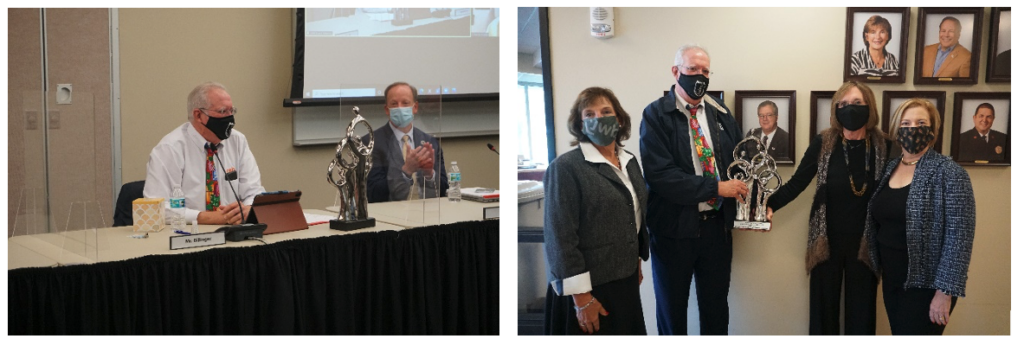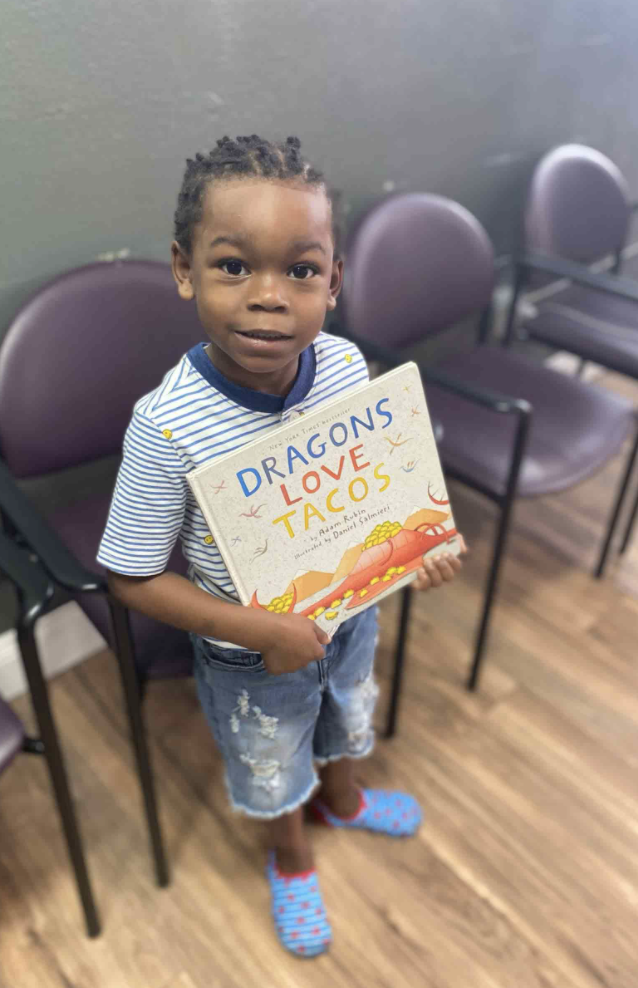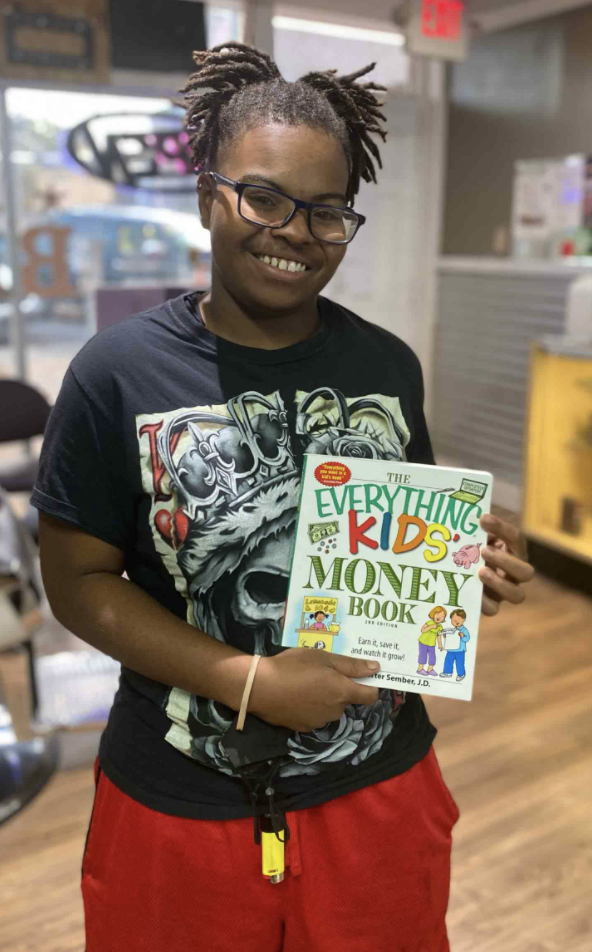Bob Dillinger has been many things to many people over his 40-year legal career: A zealous litigator. A mentor to young lawyers. An advocate for children. A philanthropist, alongside his longtime wife, Kay. A known cryer, so moved by his work that it moved the people around him, too.
As the Pinellas-Pasco judicial circuit’s chief public defender, that passion went a long way. For 24 years, Dillinger took an office tasked with defending those who can’t afford a private defense attorney and broadened it into a social services provider that tried to address root causes such as mental illness, homelessness and childhood trauma.
“Not to get all horoscope-y, but he’s a Leo, and it really shows,” said Pinellas County Judge Lorraine Kelly, referring to the astrological sign represented by a lion. “He is fierce, and he really has always had a heart for the underdog and the lowest of the low.”
Dillinger is retiring at the end of the year. He was first elected public defender in 1996 and served five terms, but Thursday is his last day on the job.
His chief deputy, Sara Mollo, takes over Jan. 5 and said she hopes to continue her boss’ legacy.
“It’s just a massive honor and privilege to follow in his footsteps,” said Mollo, 51, who ran unopposed this year.
Dillinger, 69, leaves behind a legacy of compassion and leadership, coworkers, friends and community leaders said. He spearheaded social programs and racked up awards from legal and social services organizations.
And for more than a decade, he and his wife have helped thousands of local children through the Beth Dillinger Foundation, a charity named after their daughter, who died by suicide in 2006.
“I think we’ve changed the focus,” he said, reflecting on his career, “that public defenders do more than just represent criminals. We actually are involved in the community.”
• • •
Working at the public defender’s office convinced Dillinger to become one.
He was born and raised in Daytona Beach, then moved to New York City to attend Columbia University, where he studied environmental sciences. He returned to Florida to be closer to his family and attended Stetson University College of Law in Gulfport.
He had an interest in urban planning. But he wanted to try out being in a courtroom and heard the public defender clinic allowed law students to try cases. He tried two cases and was hooked.
He graduated from law school in 1976 and took a job in the Pinellas-Pasco office as an assistant public defender. Soon, he was working on capital cases, experience that led him to help publish Florida’s first death penalty training manual for defense attorneys.
“He was always prepared, diligently studying and learning, with the overlay of great personal concern about the well-being of his clients,” said Pinellas-Pasco Chief Judge Anthony Rondolino, who worked with Dillinger in the public defender’s office back then. “It was a tremendous mixture for a criminal defense lawyer, particularly a public defender.”
In 1981, Dillinger left the office to work in private practice. His work included suing the Pinellas sheriff at the time, alleging he allowed deputies to beat suspects with a shotgun and flashlights, and successfully defending a man against a murder charge after arguing his client was taken advantage of due to his cocaine addiction.
Circuit Judge Linda Allan, who shared office space with Dillinger as an attorney then, said he always had a “real yearning” to run for public defender.
He took the leap in 1995, filing to run against his old boss and fellow Republican, Robert Jagger, in the 1996 primary.
At the time, Jagger was believed to be the longest-serving public defender in the country. To Jagger, that meant he brought consistency and experience to the job. To Dillinger, it meant stale and out-of-touch leadership.
Facing a 35-year incumbent, in a race few voters paid attention to, Dillinger used some creative tactics. At a 1995 Bucs-Jaguars game, a small plane flew above the 71,629 spectators with a banner: “Dillinger for public defender.” The next year, days before the election, as all eyes were on the forecast for Tropical Storm Fran, he bought air time on the Weather Channel.
Something worked, because Dillinger beat his old boss with 57 percent of the vote. On his first day on the job, he said he had his office door taken off the hinges — the literal embodiment of an open-door policy.
• • •
Before she was a circuit judge, Chris Helinger was working at the public defender’s office when her newly elected boss asked her to review some case files. Dillinger had a hunch about them.
In one, Gulfport police had pinned a dozen burglaries on a Black man with intellectual disabilities. As Helinger dug in, the case against him fell apart. Police said he’d confessed, but there were no recordings or written records of what he said, and there was no other evidence tying him to the alleged crimes. It was one of several issues within the department that sparked a Department of Justice civil rights probe.
Another case was a Madeira Beach man who was facing charges of armed robbery and sexual battery in a series of hotel robberies on the beach. Dillinger told her the man insisted he was innocent, and that there was another man in jail — accused of murder and bank robbery — who looked just like him.
A description of the so-called “beach bandit” was that he was wearing a distinctive shirt with the word “Meridian” on it. So, during an interview with the lookalike’s girlfriend, Helinger asked if she had any of his clothes. The girlfriend said she did.
In an unprecedented move, Dillinger’s office pursued a search warrant — a legal maneuver usually employed only by law enforcement. There, at the top of a bag full of clothing, was the shirt.
“I’ll never forget that moment,” Helinger said. “I have such fond feelings for him because he enabled me to do those things. He was very good at picking out where the talent was and where it wasn’t.”
One of Dillinger’s most high-profile victories was the exoneration of Dale Morris Jr., who the Pasco County Sheriff’s Office accused of the 1997 rape and murder of his 9-year-old neighbor, Sharra Ferger. Dillinger, convinced of Morris’ innocence, threw his office’s resources at Morris’ defense.
The state’s case hung on a bite mark on the child’s shoulder: the sheriff’s dental expert said it matched Morris’ imprints. Defense experts came to the opposite conclusion. Then, just a few weeks before Morris’ 1998 trial was set to start, crime labs determined that hair found on the girl’s body matched another man, not Morris.
Dillinger said he’d never forget the call from a prosecutor, letting him know the state was abandoning the charge. The court document dismissing Morris’ case is framed in his office with this brass engraving: “These actions are the direct result of total dedication by an entire office.”
• • •
It wasn’t just defending clients in the courtroom that Dillinger excelled at.
“His view of his job … went way beyond the traditional role of defending someone in a courtroom,” Pinellas Sheriff Bob Gualtieri said.
Dillinger said he came into the job with a passion for mental health after seeing how much it played a role in his clients’ cases.
He drew attention in the early 2000s to an issue that still persists today, that a broken mental health care system led jails and prisons to become de facto mental hospitals. He won a grant in 2003 for a program that has since diverted more than 7,000 jail inmates with severe mental illness into treatment.
He was instrumental in creating programs that helped with substance abuse disorders and homelessness. And he cared deeply about children. Dillinger saw a link between dependency cases, a civil action that occurs when a child is suspected to be a victim of abuse or neglect, and delinquency cases, in which a child faces criminal charges. He described it this way to the then-St. Petersburg Times in 2008:
“They push somebody in a foster care home, they act out because they feel they’re being abused or not being treated right,” Dillinger said. “And they end up with delinquency charges.”
That resulted in one of the programs he’s most proud of: Crossover for Children, which pairs a child with the same public defender for both cases. The program not only gives children legal help, he said, but also a consistent advocate in lives often marked by uncertainty and trauma.
Outside the office, the Dillinger family grappled with their own tragedy. He and his wife’s only child, daughter Beth, killed herself in 2006. She was 32 and engaged. Her parents went from planning her wedding to planning her funeral.
The Dillingers channeled their pain into helping other children. The year after her death, they started the Beth Dillinger Foundation.
It began with Beth’s Closet, a boutique of clothes and accessories for at-risk teens served by the Pace Center for Girls and has grown to offer several programs, including Nourish to Flourish, which provides meals on weekends to thousands of children whose only access to consistent meals was at school during the week.
“Within a single meeting you could find him passionately nearly being in tears about children in hunger and seriously holding people accountable,” said Beth Houghton, chief executive officer of the Juvenile Welfare Board of Pinellas County, on which Dillinger served for 20 years.
“He brought out the side of him that was needed at the time.”
• • •
So what does slowing down look like for a guy like Dillinger?
It was going to include traveling and museums and nights out to dinner, before the coronavirus pandemic swept the world. For now, it’s books, a little Netflix, and lots of time at his house on the Withlacoochee River, fishing for large-mouth bass, elusive amid the panfish. He and his wife will also continue their work with the foundation.
Retirement may include some doctor’s visits, too. Dillinger is on his ninth round of chemotherapy since he was diagnosed with leukemia in 2007. He feels fine, he said, but the cancer has racked his immune system, making his last year in office particularly challenging amid a pandemic.
View the full news story by Tampa Bay Times at https://www.tampabay.com/news/pinellas/2020/12/26/bob-dillinger-was-far-more-than-pinellas-pascos-public-defender/












